Middle East
UK arms exports to Israel press ahead despite licence suspension: Study | Israel-Palestine conflict News
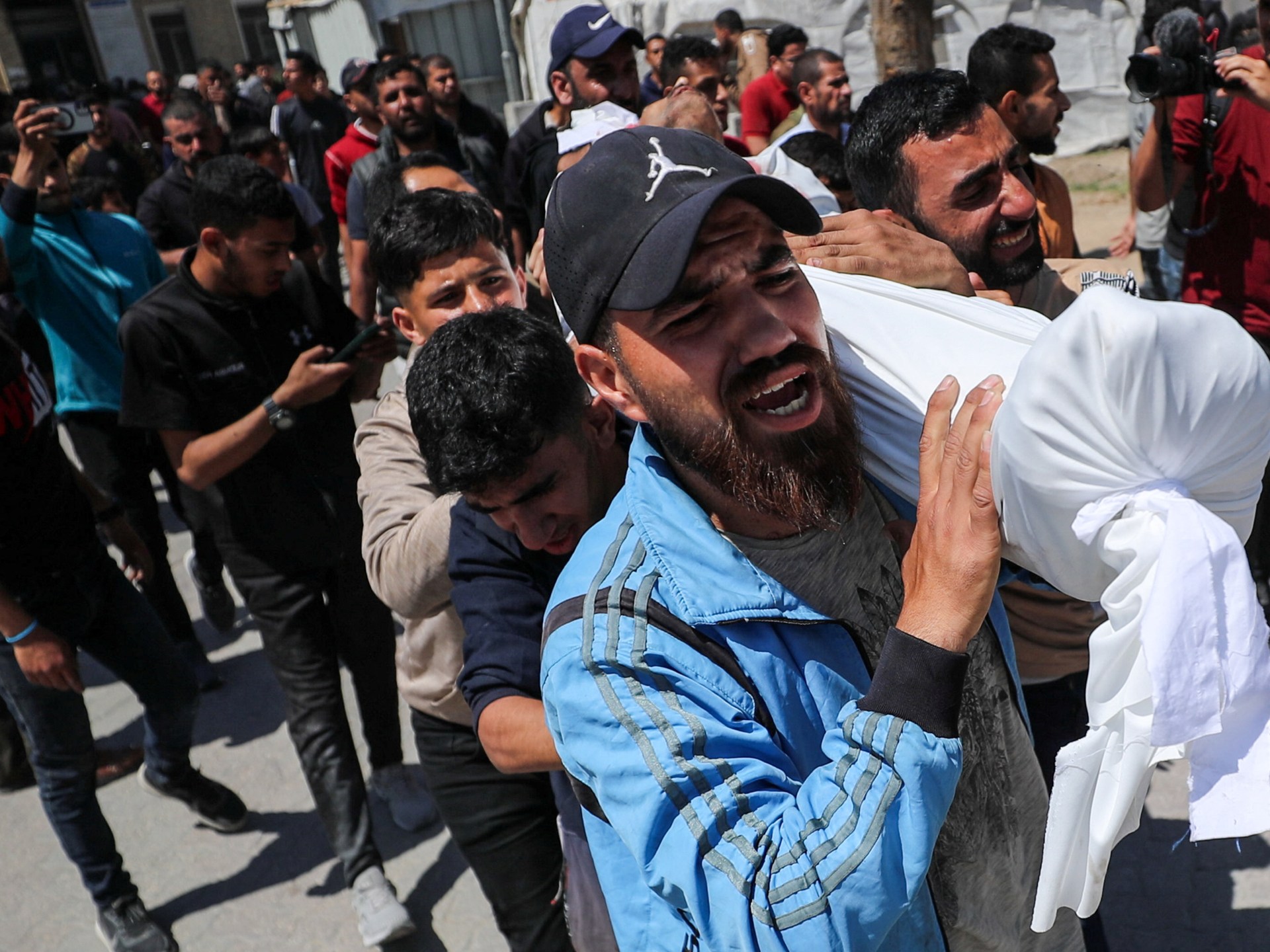
British pro-Palestinian activist groups found that since September the government had sent ‘8,630 separate munitions’ to Israel.
A new report has found that United Kingdom firms have continued to export military items to Israel despite a government suspension in September last year, amid allegations that the British parliament has been deliberately “misled”.
A report by the Palestinian Youth Movement, Progressive International and Workers for a Free Palestine revealed on Wednesday that the UK sent “8,630 separate munitions since the suspensions took effect, all in the category ‘Bombs, Grenades, Torpedoes, Mines, Missiles And Similar Munitions Of War And Parts Thereof-Other’.
“Despite [Foreign Minister] David Lammy, Trade Secretary Jonathan Reynolds MP and other Ministers repeatedly reiterating in the House of Commons that the Government has ended this direct supply of F-35 [fighter jets] parts, the evidence indicates that they have continued to send direct shipments of components for lethal F-35 jets to Israel after September 2024 – and that these shipments are ongoing,” it added.
In September, Lammy announced the suspension of 29 arms export licences, out of 350, that were used during Israel’s war on Gaza.
Lammy said the government had found there had been a “clear risk” that the licences “might be used to commit or facilitate a serious violation of international humanitarian law”. He said the ongoing licences covered items such as “goggles and helmets for use by one of the UK’s closest allies”.
‘Parliament misled’
The report used data from the Israel Tax Authority and concluded that Lammy had “misled” Parliament and the public about arms exports to Israel.
Former Labour shadow Chancellor John McDonnell said the government has a lot of “explaining to do” in response to the report.
“If Parliament has been misled by the Foreign Secretary or any minister it is a resigning matter and more importantly it attracts potentially a charge of complicity in war crimes. The Government has shrouded its arms supplies to Israel in secrecy,” McDonnell said.
Former leader of the Labour Party and independent MP, Jeremy Corbyn, said the report could explain why the government has not responded to a call for a public inquiry into the UK’s role in Israel’s military assault.
“When will the UK government come clean about the reality of military cooperation with Israel? The public deserves to know the full scale of the UK’s complicity in crimes against humanity – and we are not going anywhere until we have established the truth,” he said.
The Foreign Office told Al Jazeera that the government has suspended the “relevant licences” that might be used to “commit or facilitate serious violations of International Humanitarian Law in Gaza.”
“Of the remaining licences for Israel, the vast majority are not for the Israeli Defence Forces but are for civilian purposes or re-export, and therefore are not used in the war in Gaza. The only exemption is the F-35 programme due to its strategic role in NATO and wider implications for international peace and security,” the ministry said.
“Any suggestion that the UK is licensing other weapons for use by Israel in the war in Gaza is misleading.”
“The UK totally opposes an expansion of Israel’s military operations in Gaza. We urge all parties to return urgently to talks, implement the ceasefire agreement in full, secure the release of hostages taken by Hamas, and work towards a permanent peace,” it added.
Middle East
The Take: What does Israel’s escalation with the Houthis mean for Yemen? | Houthis News
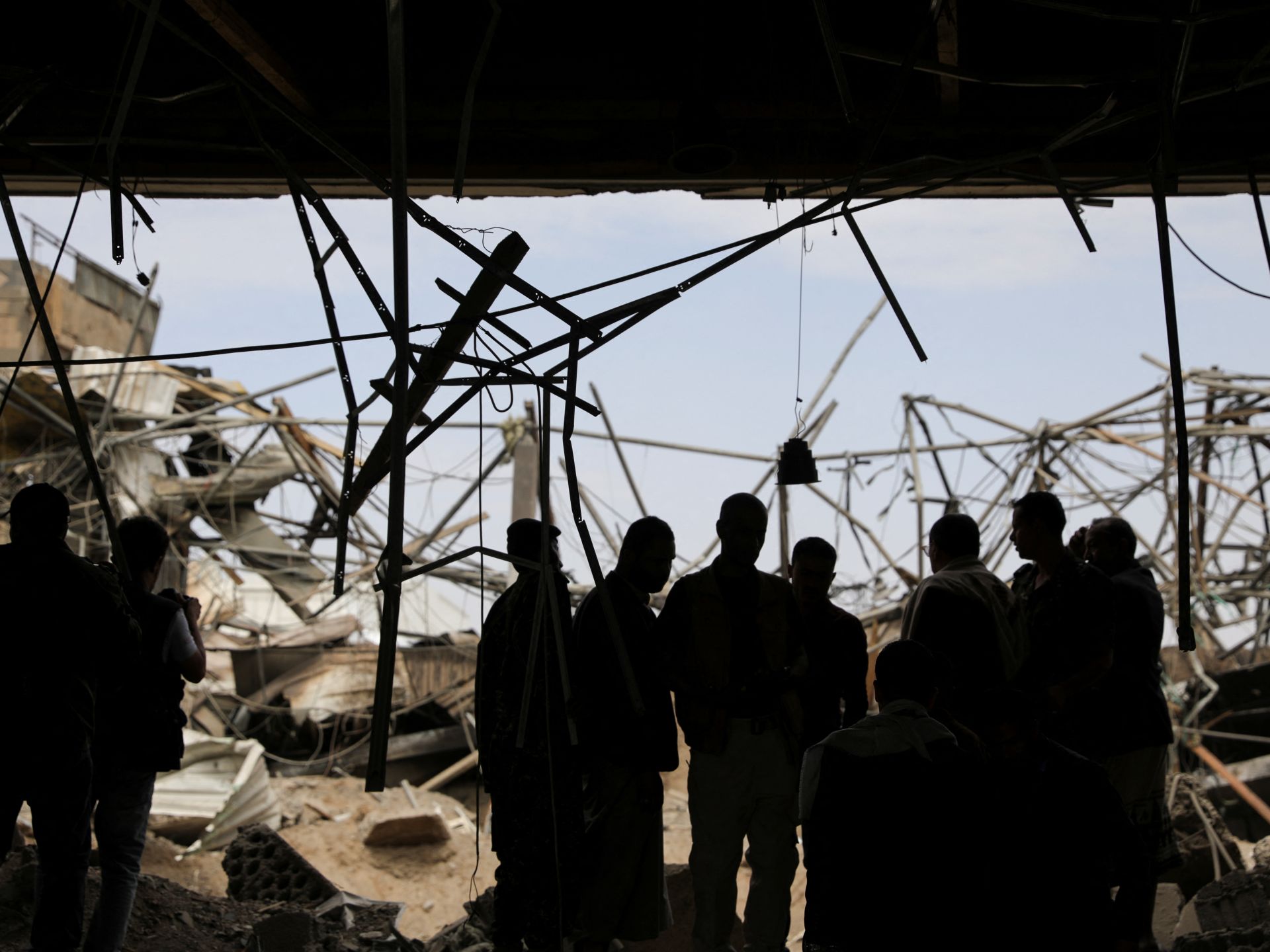
PodcastPodcast, The Take
Israel bombed Sanaa airport and Hodeidah port after Houthi missiles hit near Tel Aviv, prompting fears of wider war.
Israel bombed Yemen’s Sanaa airport and the Hodeidah port within 24 hours, as tensions have been escalating in response to Israel’s war on Gaza. On Sunday, the Houthis launched missiles that landed near Ben Gurion airport in Tel Aviv. What does it mean for Yemenis facing this escalation?
In this episode:
Maysaa Shuja al-Deen (@maysaashujaa), Yemeni writer and researcher
Episode credits:
This episode was produced by Chloe K. Li, Sonia Bhagat, and Sarí el-Khalili with Phillip Lanos, Spencer Cline, Khaled Soltan, Kisaa Zehra, Kingwell Ma, Remas Alhawari, Mariana Navarette and our guest host, Natasha Del Toro. It was edited by Noor Wazwaz.
Our sound designer is Alex Roldan. Our video editors are Hisham Abu Salah and Mohannad Al-Melhem. Alexandra Locke is The Take’s executive producer. Ney Alvarez is Al Jazeera’s head of audio.
Connect with us:
@AJEPodcasts on Instagram, X, Facebook, Threads and YouTube
Middle East
What does the truce between the Houthis and the US mean for Yemenis? | Houthis
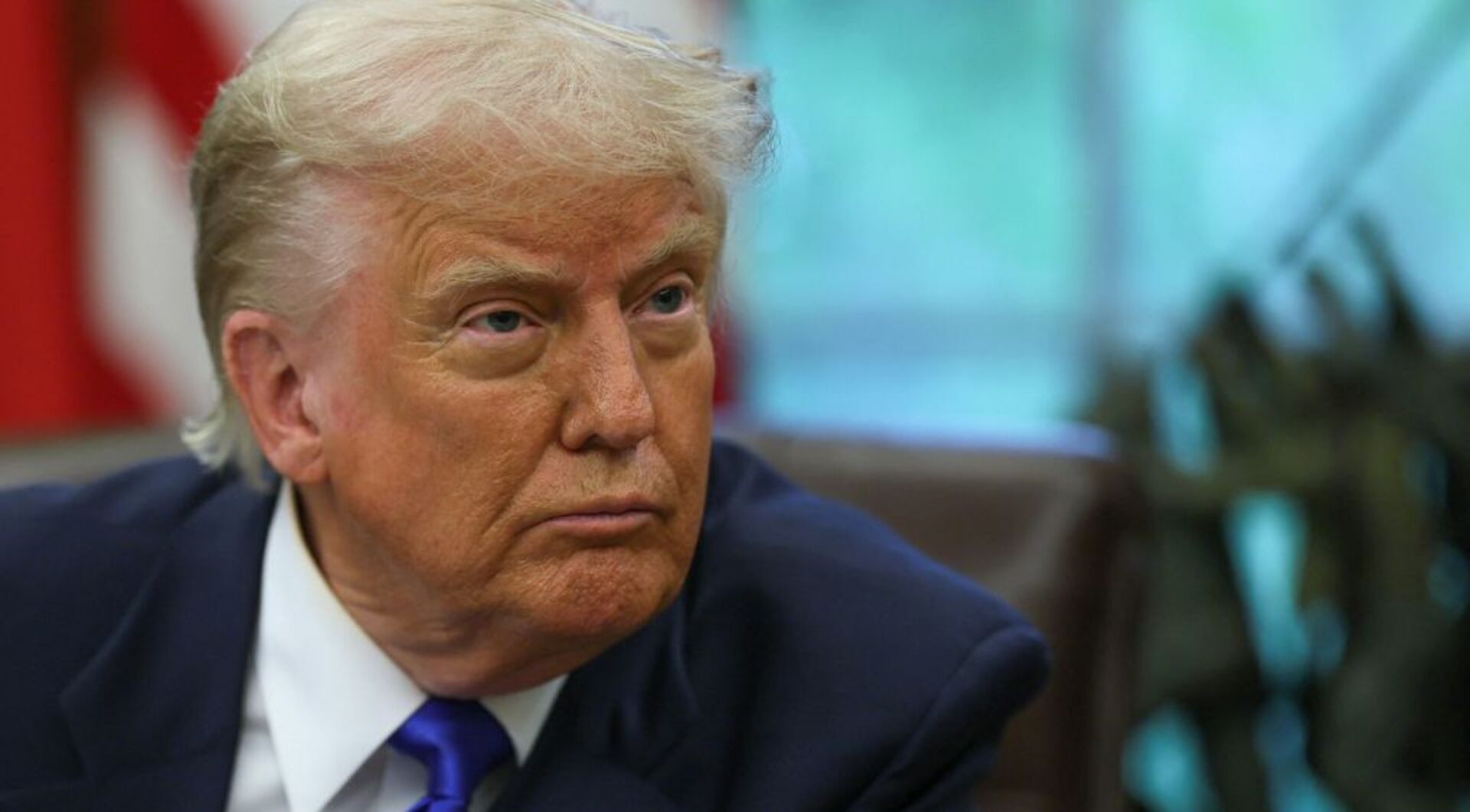
The United States and the Houthis have agreed to a ceasefire.
The Houthis, who control large areas of Yemen, began attacking Israel and commercial shipping and some US navy vessels in the Red Sea after Israel launched its war on Gaza in October 2023.
In response to Houthi attacks on shipping lanes, the US carried out attacks on the Iran-aligned group in Yemen.
Under the truce deal mediated by Oman, the US will halt its strikes on Houthi sites, and the Yemeni group will stop attacking US ships.
But the agreement does not include a truce in the conflict between Israel and the Houthis.
So, will Israel also stop its attacks? What does this all mean for the acute humanitarian crisis facing Yemenis?
Presenter: James Bays
Guests:
Maysaa Shuja al-Deen – Senior researcher, Sana’a Center for Strategic Studies
Ahmed al-Ashwal – Political and military analyst
Nabeel Khoury – Former US diplomat and former US deputy chief of mission to Yemen
Middle East
Syria’s al-Sharaa confirms indirect talks with Israel amid soaring tensions | Politics News
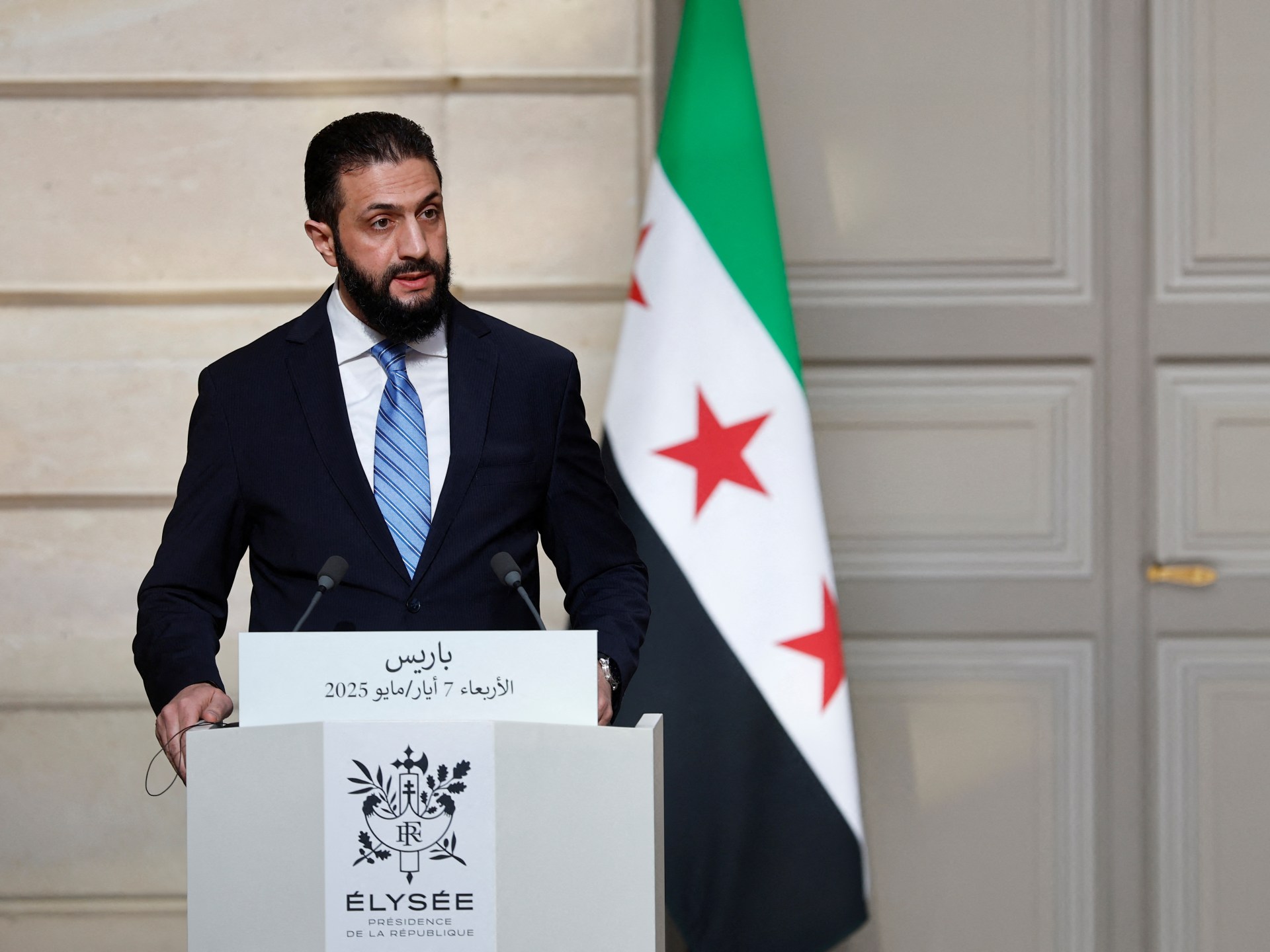
Interim President Ahmed al-Sharaa says Syria holding indirect talks with Israel ‘through mediators’.
Syrian’s interim President Ahmed al-Sharaa says his government has engaged in indirect talks with Israel in an attempt to ease escalating tensions between the two nations.
The announcement comes after an escalation in Israeli attacks on Syria last week, including a strike that landed just 500 metres (1,640 feet) from the presidential palace in Damascus on Friday.
Israel claimed its most recent air strikes were a response to what it described as threats to the country’s minority Druze community.
“There are indirect talks with Israel through mediators to calm and attempt to absorb the situation so that it does not reach a level that both sides lose control over,” al-Sharaa said, reiterating blame on Israel over what he described as its “random interventions” in Syria.
He also said Damascus was talking to states that communicate with Israel to “pressure them to stop intervening in Syrian affairs and bomb some of its infrastructure.”
There was no immediate comment from Israeli authorities.

Al-Sharaa’s remarks come during a landmark visit to Paris, his first trip to a European country since assuming office after he led opposition fighters in a lightning offensive that toppled longtime ruler Bashar al-Assad in December.
The visit required a special exemption from the United Nations, as al-Sharaa remains under international sanctions due to his previous role as leader of the armed group Hayat Tahrir al-Sham (HTS), a former al-Qaeda affiliate.
Lifting sanctions
Speaking in Paris after meeting President Emmanuel Macron at the Elysee Palace, al-Sharaa called for the lifting of economic restrictions on Syria, stating: “Nothing justifies maintaining sanctions imposed on the previous regimes.”
President Macron said France would consider gradually lifting European Union sanctions if Syria continued along its current path.
“I told the president that if he continues on his path, we would do the same, namely by first progressively lifting European sanctions, and then we would also lobby our American partners to follow suit on this matter,” Macron said.
The European Union has already lifted some restrictions, while other measures targeting individuals and entities are set to expire on 1 June. Sanctions relief in sectors such as oil, gas, electricity and transport remain crucial for Syria, where the World Bank estimates reconstruction of the country could cost more than $250bn.
Despite some easing of sanctions by European countries, the Trump administration has been more reserved in its approach to the new Syrian administration.
Macron revealed that he is urging the United States to delay its planned military withdrawal from Syria, arguing that lifting sanctions should be prioritised as a step towards ensuring long-term stability.
Al Jazeera’s Natacha Butler, reporting from Paris, said, “In return, Macron expects Syria’s new government to protect minorities, ensure stability and crack down on what he called terrorist organisations, including ISIS.”
“Sharaa is here to project a reassuring image to France’s Western allies, who have been a little bit wary and are looking to see what direction the new leadership takes,” Butler added.
-

 Europe2 days ago
Europe2 days agoTesla sales plunge across Europe
-

 Africa2 days ago
Africa2 days agoNew wave of Sudanese refugees flee into neighbouring Chad
-
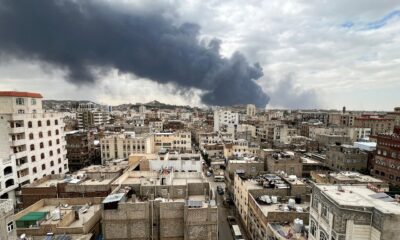
 Middle East2 days ago
Middle East2 days agoIsrael hits Yemen’s Houthi-controlled Sanaa airport in tit-for-tat attack | Houthis News
-

 Sports2 days ago
Sports2 days agoLindsey Vonn says she proved to herself and her doubters that ‘I deserve to be here’ after skiing return
-
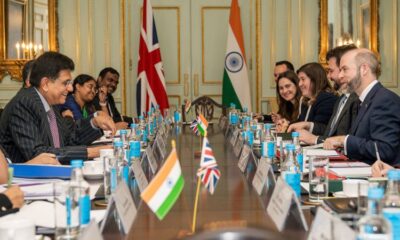
 Europe2 days ago
Europe2 days agoIndia just agreed a massive trade deal – with the UK
-

 Sports2 days ago
Sports2 days agoFan who fell onto field at PNC Park during Pirates game takes first steps
-

 Lifestyle2 days ago
Lifestyle2 days agoOne Tech Tip: Skype shut down for good, but users still have these alternatives
-
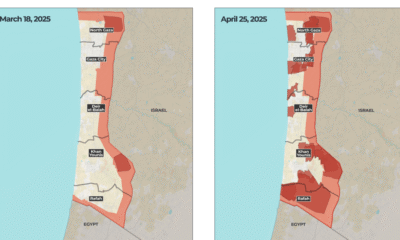
 Middle East2 days ago
Middle East2 days agoIsrael has turned 70% of Gaza into no-go zones, in maps | Israel-Palestine conflict News




